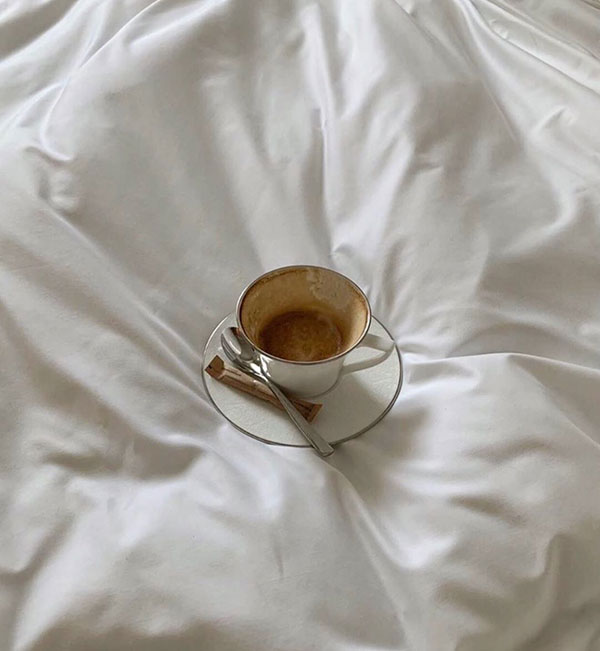ROSEMARY NYAMBURA SPENDS her weekends collecting plastic with her aunt Miriam in the Dandora dump in Nairobi. Because the bottles they sell to other plastics traders are mixed in with discarded syringes, broken glass, feces, fragments of cellphone cases, remote controls, shoe soles, trinkets, toys, pouches, clamshells, bags, and countless unrecognizable shreds of thin plastic film, the work is time-consuming and dangerous. But Rosemary, who is 11, is hopeful that her effort will pay off. Several of her six cousins, whom she has lived with since her mother died, have already dropped out of high school because her aunt couldn’t afford their school fees. If Rosemary makes it through elementary and secondary school, and then college and medical school after that, she vows to return to Dandora. “I see how people get sick a lot here,” Rosemary said on a recent Saturday, as she stood atop a mound of rancid trash. “If I become a doctor, I would even help them for free.”
It will take a long time for Rosemary to earn enough to pay for school with her earnings from discarded plastic. Everything that’s worth anything in Dandora, which stretches for more than 30 acres in the eastern part of the Kenyan capital, is contested. Groups of local businessmen control who trades and collects waste in the dump and even charge fees to enter certain areas. Birds, cows, and goats have staked out their own grazing spots on the mounds. And waste-pickers sometimes fight over the best finds. Discarded airplane food can spark some of the fiercest fights. Whoever wins completely devours every bit of the old, dry rolls, congealed meat, and overcooked pasta, even the contents of the tiny tub of butter, before tossing the plastic packaging onto the vast piles.
Traders who sit along the edges of the dump buy soda bottles made from PET, or polyethylene terephthalate, which Miriam gathers seven days a week, for less than 5 cents a kilogram — more than the cardboard boxes she also picks off the heaps, but far less than what they’ll pay for the same weight of metal cans. It can take many hours, even days, to collect a kilo of plastic bottles. And the bags that can fit them all, called diblas, are too big and unwieldy for children to carry.
A local youth organization, Dandora HipHop City, came up with a way for kids who live near the dump and don’t have the strength or time to gather a whole kilo of plastic to still get something for individual bottles and other pieces of plastic they gather. At the group’s “bank,” a storefront one block from the dump, kids can earn points for even a single plastic bottle, which they can then redeem for cooking oil, flour, vegetables, and other essentials. The organization, which was founded by a hip-hop artist who grew up nearby, also runs a youth program in a building on the edge of the dump. Festooned with hand-painted art and furnished with scavenged scraps that serve as chairs and sofas, the building provides a place for the kids to compose music on old computers, write, play games, and just pass the time.
Read the rest of this article at: The Intercept
When Adam Schlesinger developed symptoms of the coronavirus in mid-March, his friends thought he would pull through. A healthy 52-year-old, he’d been blessed all his life with both talent and luck. He was the most boundlessly energetic person any of them knew, with a career unlike any other indie songwriter’s — playing in multiple acclaimed bands and writing songs for movies, TV shows, and Broadway, among countless other projects.
“Like a lot of workaholics, he kept a million different things going at once, and was incredibly restless just sitting around,” says Chris Collingwood, the lead singer of Schlesinger’s best-known band, Fountains of Wayne. “He couldn’t really sit in the sun doing nothing, or read a book, or go to a movie theater, because it felt like wasted time.”
In the rare moments when he wasn’t working, Schlesinger was the funniest person at any party he walked into. “He was a best friend to everybody,” says Steven M. Gold, who helped produce the more than 150 songs that Schlesinger wrote for the CW’s Crazy Ex-Girlfriend, in styles from show tunes to hip-hop. “People felt flattered when they got a text from Adam saying, ‘Let’s go to dinner.’”
Read the rest of this article at: RollingStone
Even if you haven’t been following the news particularly closely the past couple of years, it probably won’t have escaped you that a certain word has been getting a lot of attention: truth.
So it turns out my philosophy degree can be put to good use after all.
Ever since the election of pathological liar Donald Trump in 2016, Britain’s decision to leave the EU based on a misinformation campaign, and our social media timelines flooded with fake news stories, a new theory has emerged: we now live in a “post-truth” society. A world in which truth no longer matters, where facts are countered by “alternative facts”, and reality is more about your media diet than about the world as it is.
It’s not hard to see why people feel that “truth” has become irrelevant, given how ubiquitous political lies and conspiracies posing as journalism are nowadays. It’s no surprise, either, that all of this is often linked to the rise of populism more generally. In a society that no longer believes in the importance of truth, populism can certainly thrive as never before.
But an obvious question we often forget to ask in all this theorising seems to be: what is truth? Or more specifically: if we are “post-truth” as a society, which truth have we left behind? And perhaps even more importantly: what, if anything, has taken its place?
To answer those questions, I would first like to examine the three types of truth
First up is metaphysical truth, characterised by the idea that truth exists outside of earthly reality, and is therefore beyond human reach. It resides in what’s often called the realm of the transcendent and is accessed through revelation and faith. It cannot be known; it can only be believed – the basis of every world religion.
Second is scientific truth, characterised by the idea that truth is very much within human reach and can be found through reason, perception and experiment. Modern science is based on this conception of truth. It is independent from how we, human beings, see the world – also known as “objectivity”. Yet at the same time, this type of truth is closer to humankind than the transcendent, in the sense that it is actually attainable. People can access it through knowledge: you don’t need to believe it, you can know it.
Read the rest of this article at: The Correspondent
Here’sHere’s one story from one restaurant in a nation of more than a million, at a time when all have been wracked with the same panic and weighted by the same fears. On the night of March 28, about half of the 18 employees at Café Rakka, a Syrian restaurant in Hendersonville, Tennessee, stood together in the kitchen. They wore aprons over their bodies and masks over their faces, and they gathered around their boss, the chef and owner, Riyad Alkasem.
“So,” he asked them, “what do you guys want to do?”
He’d been asking the rest of the staff that question all day. Riyad was trying to make the same decision that every owner of every restaurant, in America and many other parts of the world, has faced over the past few weeks. “Should we close?” Conventional wisdom seemed to shift daily. So did his gut. He didn’t know what was best—for himself or his business, for his employees or their families.
The coronavirus had taken hold in every corner of the country. The results, for restaurants, had been catastrophic. A few miles away in Nashville and in other corners of America, some restaurants had closed weeks earlier, in mid-March. Others had tried transitioning to takeout, only to shutter within days or weeks. Others still were pushing forward with services like Postmates and Grubhub, hoping delivery could keep them afloat. Here in Tennessee, the governor had not yet issued a stay-at-home order. Even when that order arrived on April 2, restaurants would still be allowed to serve meals to go. They would still have a decision to make.
Riyad looked around the room, gauging the mood. This restaurant was his life’s work. He’d learned to cook these meals in his grandmothers’ kitchens and in the “tribe houses” of his hometown in Raqqa, Syria. Now his grandmothers were dead, his native city destroyed by war. But his restaurant still stood, and with it a piece of his tribe’s culture, finding new life thousands of miles away in a Tennessee strip mall. But with the virus in the air, business was eroding. The restaurant was bringing in 23 percent of projected weekly revenue. “The ship was sinking slowly,” he would tell me later. “We were choking. Going underwater.”
That night, he looked around at his employees. They ranged in age from their early 20s to their 50s. A few were white, native Hendersonvillians. Others were immigrants from Jordan and Ecuador and Mexico and elsewhere. “This is my new tribe,” he likes to say about himself and his staff. Together, they’d built a restaurant consistently named the best in their mostly white and conservative suburban county. But now, he looked around the room and he saw that they were afraid. Of illness. Of unemployment. Of how the virus could destroy life in so many cruel and unpredictable ways.
“If you are open, I am here,” said Mohammad Khader, his second sous chef.
“If we sit at home,” asked prep cook Rafa Lima, “what are we gonna do?”
Riyad knew what that meant. He didn’t wonder what they’d do out of boredom. He wondered what they’d do to make the money needed to survive.
They talked it over for a while, weighing terrible options. The virus seemed like one kind of killer, unemployment and poverty like another. Congress had just passed the CARES Act a couple of days before, intended to help workers and small businesses through the crisis, but it was still unclear how much, if at all, that would help. If they shut down and aid proved limited, Riyad might be able to give the neediest employees money from his own pocket, but not much. His restaurant is small. Like most, its profit margins are razor-thin. At home, Riyad knew his wife and two sons were terrified for his safety. Riyad is only 52, but he’s dealt with heart problems over the years. His sons are both immunocompromised. His family wondered whether he should protect himself by isolating at home. Either choice, open or close, seemed to carry its own grave risks.
Read the rest of this article at: The Ringer







:format(webp)/cdn.vox-cdn.com/uploads/chorus_image/image/66649062/Ringer_RestaurantPandemic_01.0.jpg)